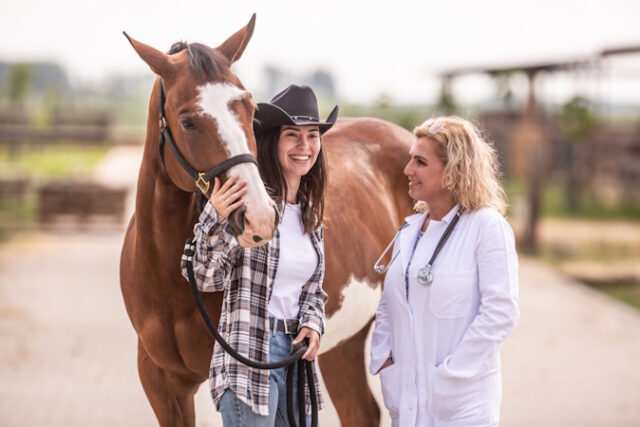
Caring for a horse involves more than feeding, grooming, and exercise. For optimal health and performance, many horses require dietary supplementation. Supplements can address specific health needs such as joint health, digestion, coat shine, or muscle development.
However, administering supplements effectively requires a clear understanding of your horse’s needs, the type of supplements available, and the best methods to incorporate them into their daily routine.
This guide will help you navigate the world of horse supplements and ensure you’re providing them effectively and safely.
Understand Your Horse’s Needs
Before introducing supplements into your horse’s diet, it’s essential to assess their specific requirements. Factors that influence supplement needs include:
- Age: Young, growing horses may require bone and joint supplements, while older horses often benefit from joint or digestion aids.
- Activity Level: Performance horses may need muscle recovery and energy-boosting supplements, while leisure horses might require general maintenance nutrients.
- Health Conditions: Horses with specific conditions like arthritis, ulcers, or laminitis may need targeted supplements.
- Dietary Deficiencies: Hay, grass, and feed may lack certain nutrients, which supplements can help fill.
Consult a veterinarian or equine nutritionist to identify what supplements, if any, your horse needs. Over-supplementing can be as harmful as deficiencies.
Types of Horse Supplements
Understanding the various types of supplements can help you choose the right ones for your horse. Common categories include:
Joint Supplements
Contains glucosamine, chondroitin, or hyaluronic acid to support joint health and mobility, especially for older or highly active horses.
Digestive Aids
Probiotics and prebiotics promote a healthy gut microbiome and can help prevent colic or ulcers.
Hoof Supplements
Rich in biotin, zinc, and methionine, these are designed to improve hoof strength and growth.
Coat and Skin Supplements
Typically contain omega-3 fatty acids, flaxseed, and vitamins to enhance coat shine and skin health.
Electrolytes
Essential for horses that sweat heavily, especially during hot weather or intense exercise.
Calming Supplements
Often contains magnesium, valerian root, or tryptophan to reduce stress and promote relaxation.
Performance Boosters
Include amino acids and specific vitamins to enhance energy and recovery for competitive horses.
Tips for Administering Horse Supplements
Once you’ve selected the appropriate EquiNutritive’s horse supplement, proper administration is key to effectiveness. Follow these tips to ensure your horse gets the full benefits:
Introduce Gradually
Horses can be picky eaters, so introduce supplements slowly. Start with small amounts mixed into their feed and gradually increase to the recommended dosage.
Mix Supplements with Feed
Most supplements are designed to be mixed with your horse’s regular feed. Wetting the feed slightly can help powders stick and prevent your horse from eating around them.
Use Palatable Supplements
Some supplements have a strong taste or smell that horses might reject. Look for flavored or coated products to make them more appealing.
Administer at the Right Time
Timing can impact the effectiveness of certain supplements. For example:
- Electrolytes should be given after heavy exercise or sweating.
- Calming supplements are most effective when administered a few hours before a stressful event.
Avoid Overlapping Ingredients
Check the ingredient lists of all supplements you use to avoid overloading your horse with certain nutrients like selenium, which can be toxic in high amounts.
Monitor for Allergic Reactions
Keep an eye out for signs of allergies or adverse reactions, such as skin irritation, digestive upset, or behavioral changes. If you notice any issues, discontinue the supplement and consult your vet.
Store Properly
Store supplements in a cool, dry place, away from direct sunlight and moisture, to preserve their potency and prevent spoilage.
Establish a Routine
Horses thrive on consistency. Incorporate supplements into their feeding routine at the same time each day. A predictable schedule ensures your horse gets their supplements regularly and minimizes the chances of missing a dose.
Track Your Horse’s Progress
Monitor your horse’s health and behavior after introducing supplements. Keep a journal to note changes in their coat condition, energy levels, performance, or any other targeted areas. Regular evaluations can help you determine if the supplements are effective or if adjustments are needed.
Common Mistakes to Avoid
While supplements can benefit your horse, improper use can lead to problems. Avoid these common mistakes:
- Skipping Professional Advice: Always consult a veterinarian or equine nutritionist before starting supplements.
- Overloading with Supplements: Avoid giving too many supplements at once, as they can interact negatively or provide unnecessary nutrients.
- Ignoring Feeding Instructions: Follow the manufacturer’s guidelines for dosage and administration.
- Neglecting a Balanced Diet: Supplements should complement, not replace, a well-balanced diet of quality forage and feed.
Cost-Effectiveness
Supplements can add up in cost, especially if you’re feeding multiple horses. To make supplementation cost-effective:
- Purchase supplements in bulk for better pricing.
- Use combination products that address multiple needs.
- Regularly reassess your horse’s needs to eliminate unnecessary supplements.
When to Stop Supplements
Not all supplements need to be given indefinitely. Horses recovering from an injury may no longer need joint or muscle supplements after healing. Similarly, seasonal supplements like electrolytes may only be necessary during hot months. Work with your vet to periodically reassess your horse’s supplement regimen.
Administering horse supplements effectively can greatly enhance your horse’s health, performance, and overall quality of life. By understanding their unique needs, selecting the right products, and following proper administration techniques, you can ensure your horse gets the full benefits.
Always consult a veterinarian or equine nutritionist to guide your decisions and periodically review your supplementation program for continued success.
A well-cared-for horse is a happy horse—and with the right supplements, you’re setting them up for long-term health and vitality.
Disclaimer
The information contained in South Florida Reporter is for general information purposes only.
The South Florida Reporter assumes no responsibility for errors or omissions in the contents of the Service.
In no event shall the South Florida Reporter be liable for any special, direct, indirect, consequential, or incidental damages or any damages whatsoever, whether in an action of contract, negligence or other tort, arising out of or in connection with the use of the Service or the contents of the Service.
The Company reserves the right to make additions, deletions, or modifications to the contents of the Service at any time without prior notice.
The Company does not warrant that the Service is free of viruses or other harmful components












